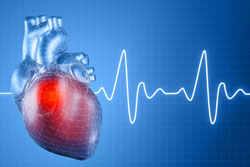For a lot of young adults who pursue a college education, drinking and college go hand and hand. Obviously, I know that when we as humans consume alcohol and exceed our personal sobriety thresholds, we become impaired. What I want to know, is what causes us to experience symptoms of being drunk when we drink an excess amount of beer? Also, for us guys, is there a possible correlation between alcohol consumption and bravado? A null hypothesis is that there is absolutely no correlation between beer consumption and one’s confidence. Let’s see…
Symptoms:
According to this website, there are many symptoms that come along with being intoxicated. These symptoms include trouble keeping your balance, trouble seeing, delayed reaction times, a hindered ability to speak and difficulty in regards to recognition. The website also explains that several factors will come into play when it comes to your body’s determination of how effected it will be by the symptoms. Factors such as age, general health, gender and one’s tolerance level, just to name a few. This article, states that the kind of alcohol that we consume is ethyl alcohol. Obviously, beer goes through a fermenting process and is composed of a wide variety of ingredients. I found an article that outlines an essay written by Dr. Robert S. Gable. According to Dr. Gable, he states that, 33 grams of ethyl consumed in the amount of two cans of beer (12oz.) would start to have effects on a healthy person of 155 pounds. If we do the math, 33 grams of alcohol consumed over two 12oz. beers would equal about 16.5oz. of ethyl alcohol that make up a single can of beer. This article states that your liver takes on, by far, most of the brunt in the ethyl alcohol consumption process. It goes on to explain that enzymes help turn alcohol into acetaldehyde, which is the toxin that enhances the symptoms you have while experiencing a hangover. As most of us know, symptoms of a hangover are strongly relatable to being overly intoxicated. But don’t worry, it also informs us that your body will metabolize the acetaldehyde, ensuring that the effects will go away in time. The same article, then goes on to explain that alcohol raises inhibitory neurotransmitter activity, specifically gamma amino butyric acid. Due to the increase in gamma amino butyric acid activity, alcohol, in our case ethyl, acts a a Central Nervous System depressant. These negative effects to our CNS correlate with physical and cognitive impairments such as the ones I listed above.
Beer and Bravado:
Ever notice that “one guy” or at time “guys” at a party or a bar that seems to be overly intoxicated and over confident? It’s obvious that the effects of alcohol has this guy believing he can ram through a brick wall. I believe that a possible correlation between beer and bravado can be justified by one’s longing for social acceptance. In this article on debunking liquid courage, Dr. Scott-Sheldon states the possible fact that, students specifically, may believe that consuming alcohol will result in a positive change in their personalities. In her meta-analysis study, Scott-Shelton, used the sociological method of incorporating 19 different alcohol expectancy challenges to over 1,400 college students. Scott-Shelton actually concluded that her intervention caused the students to reduce the amount they drink and the amount of alcohol expectancies.
After reading about her study, I wonder if it is it all in our heads? If someone can learn how to socialize more effectively and have more confidence, could we see a possible end to the “drunk guy” at parties and bars? Personally, I would guess that it’s highly unlikely due to the large amount of universities and college students.
References:













